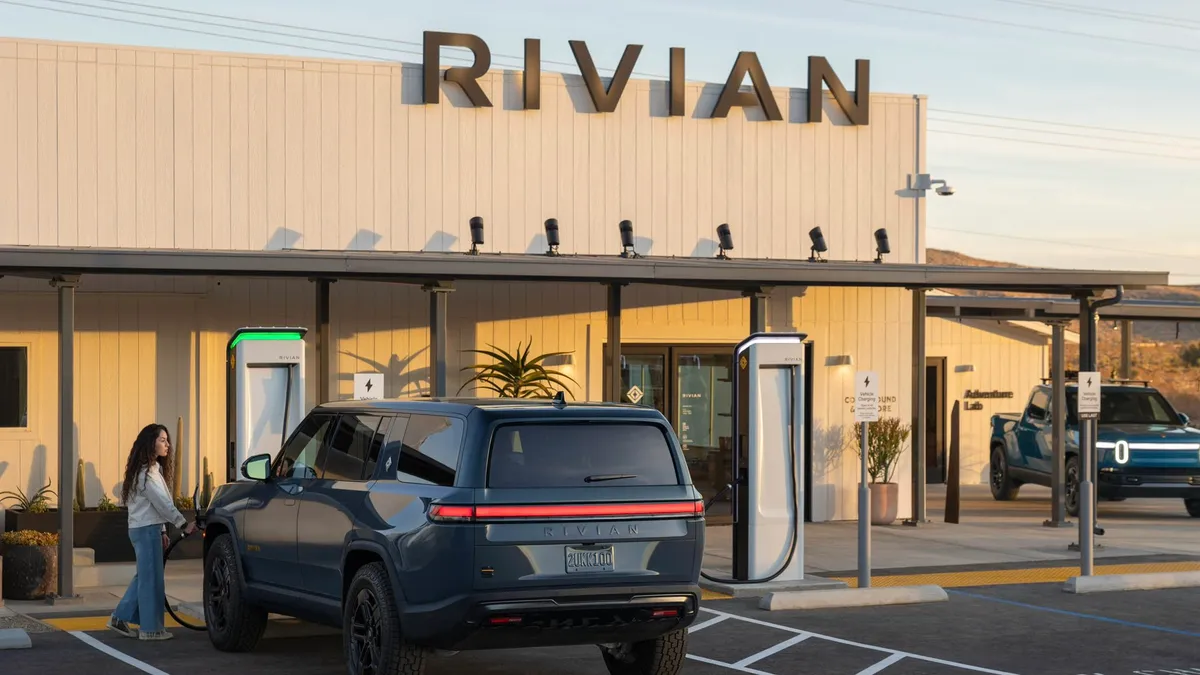Dive Brief:
- Lyft co-founders Logan Green and John Zimmer have stepped down from the company’s board of directors effective Aug. 14, the ride-hailing company announced in a press release.
- Green and Zimmer will also convert all of their shares of Lyft Class B common stock to Lyft Class A common stock on Aug. 15. The two co-founders will collectively own 9.69 million shares of Class A stock once the transaction is complete. The move was part of a two-year transition plan, according to the release.
- “Logan and John had the courage to do something monumental when they started Lyft,” said CEO David Risher, in a statement. “Today, they are taking another bold step by entrusting our team to continue their legacy and propel Lyft forward.”
Dive Insight:
With the co-founders departing, Sean Aggarwal, a Lyft board member since 2016, was elected to serve as the company’s board chair. Aggarwal previously served as Lyft’s board chair from 2019 to 2023 and was appointed lead independent director in 2023.
Aggarwal was former CFO of real estate company Trulia, which Zillow acquired for $2.5 billion in 2015.
Lyft’s board will be reduced to seven members, six of which are independent.
Lyft announced in March 2023 that Green and Zimmer would transition into non-executive roles as chair and vice chair of the Lyft board. Following the announcement, Risher was named as new CEO on April 17, 2023.
By cashing out their Class B shares, Green and Zimmer have effectively given up their enhanced voting rights and control of the company’s future direction. The Class B shares they once held gave the two executives "super-voting" power of 20 votes per share. This dual-class structure gave them significant influence on any business decisions requiring stockholder approval.
Following the conversion, all holders of Lyft common stock will hold Class A common stock with equal voting rights, per the release.

Green and Zimmer launched Lyft in 2012 as a peer-to-peer marketplace for on-demand ride-sharing, according to its S-1 filing with the Securities and Exchange Commission. The company, which is headquartered in San Francisco, has since grown into a global mobility platform that includes electric scooters and e-bikes.
Lyft launched its IPO on March 28, 2019, at $72 a share to raise capital and scale its operations. Its shares are listed on the NASDAQ under the symbol “LYFT.”
But the company has struggled to remain profitable in a highly competitive ride-share market that now includes the addition of autonomous vehicles by two of Lyft’s two biggest rivals, Uber and Waymo. Although Lyft’s stock price is up 14.5% since Jan. 1, its shares have lost 80% of their value since the IPO.
Still, Lyft's current CEO remains optimistic about the company’s future as it continues on without the large influence of its co-founders for the time in its history.
“We have the talent, strategy, and resources to grow and transform the market for years to come, and our plan is to do just that,” Risher said in a statement.
Green will continue to serve as a Venture Partner at Autotech Ventures, an early-stage Silicon Valley venture capital firm focused on mobility. While Zimmer plans to launch a new consumer-focused business venture called YES&, according to the release.











